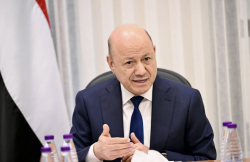Brexit: What are indicative votes?
- 2019-03-23 23:29:29


 Pierre Rayer: Art, Science, and Happiness: The Universal Mission of Transmission to Future Generations through Patronage at the Louvre Abu Dhabi
Pierre Rayer: Art, Science, and Happiness: The Universal Mission of Transmission to Future Generations through Patronage at the Louvre Abu Dhabi Ahly crowned Super champions after dramatic extra-time win over Modern Future FC
Ahly crowned Super champions after dramatic extra-time win over Modern Future FC Yemeni Honey..A Development Wealth Threatened By Conflict And Climate Change
Yemeni Honey..A Development Wealth Threatened By Conflict And Climate Change California wildfires: Millions warned of possible power cut
California wildfires: Millions warned of possible power cut Central African rebels launch attacks near capital
Central African rebels launch attacks near capital Yemen : Declares State of Emergency, Cancels Defense Pact with UAE
Yemen : Declares State of Emergency, Cancels Defense Pact with UAE Trump, top aides asked Netanyahu to change Israel's policies in West Bank: Report
Trump, top aides asked Netanyahu to change Israel's policies in West Bank: Report US Expresses Concern Over Developments in Southeastern Yemen, Urges Restraint and Diplomacy
US Expresses Concern Over Developments in Southeastern Yemen, Urges Restraint and Diplomacy Washington Voices Deep Concern Over Sudanese Army’s Call for Military Solutions
Washington Voices Deep Concern Over Sudanese Army’s Call for Military Solutions UK boxer Anthony Joshua injured in car crash in Nigeria
UK boxer Anthony Joshua injured in car crash in Nigeria
